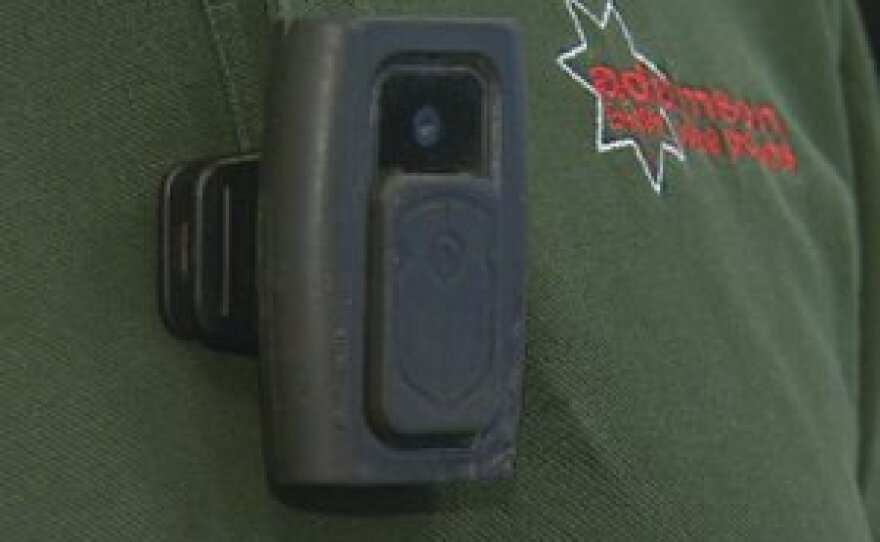Immigrant rights activists want U.S. Border Patrol agents to wear lapel cameras to monitor their interactions with people they encounter while on patrol.
An increasing number of police departments are equipping officers with wearable cameras in order to monitor police conduct and curb abuses. The cameras also provide evidence to back up, or refute, allegations.
Officers in Albuquerque and Oakland are required to tape their interactions, and many law enforcement jurisdictions in Texas have at least some officers who wear cameras.
A pilot lapel camera program in Rialto, Califo. found a nearly 60 percent reduction in the use of force by police officers. The number of complaints filed against officers dropped by nearly 90 percent during the yearlong study.
Now, a group of pro-immigrant activists from the U.S.-Mexico border region are lobbying for an amendment in the Senate immigration reform bill that would outfit Border Patrol agents with lapel cameras.
“If it’s good enough for police, it should be good enough for CBP,” said Andrea Guerrero, executive director of Alliance San Diego.
U.S. Customs and Border Protection, CBP, oversees the Border Patrol.
“It is those agents that often have encounters with border residents and with migrants without any witnesses or cameras,” Guerrero said. “It turns into a ‘he said, she said,’ and leaves us without answers as to what happened.”
The Southern Border Communities Coalition has counted 20 Border Patrol-involved killings since 2010. The group estimates the cost of outfitting the estimated 20,000 Border Patrol agents along the U.S.-Mexico border at $20 million.
But the union representing Border Patrol agents opposes the idea of agents wearing cameras.
“We have concerns about protecting the privacy and identity of agents who routinely are threatened by cartels and other criminal organizations,” Shawn Moran, spokesman for the National Border Patrol Council, said in an email.
Moran also said the union didn’t trust CBP to use footage from lapel cameras productively.
“Instead of using it to show agents doing their jobs correctly and professionally 99.99 percent of the time, CBP would scour the info looking for minor policy violations and would use that to discipline agents,” Moran said.
The Senate is expected to start debate on the immigration reform bill next week.







